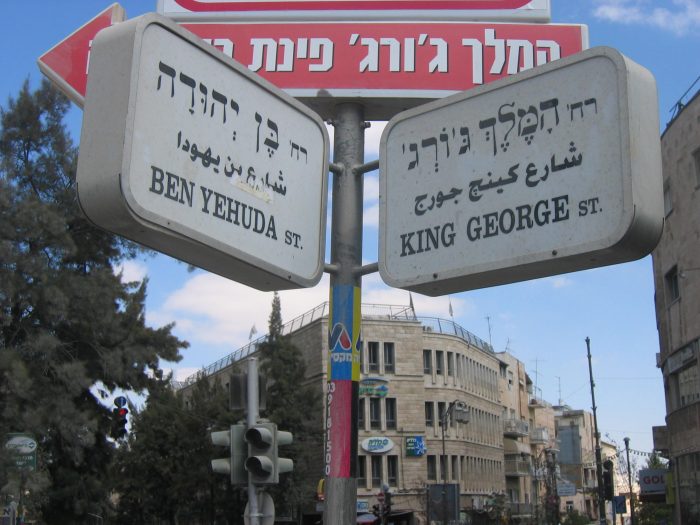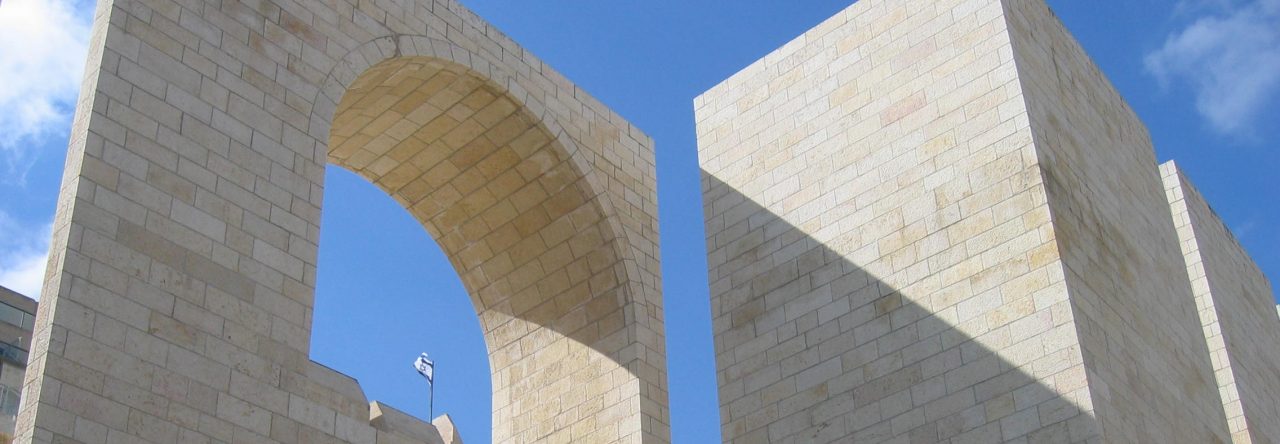75 years after its declaration of independence, Israel is still widely misunderstood
The origin of modern Israel is usually told as follows: Pogroms since the 19th century, culminating in the Holocaust, prompted Jews to emigrate to Palestine, where they enlisted British aid to revitalize their ancient state while marginalizing the native Arab population, creating a conflict that simmers to this day. From this perspective, the Jewish state is a historical anomaly and a persistent alien to the region, born of events on another continent.

The predominant post-colonial theories in the humanities at Western universities have reinforced this view that Israel is a mere by-product of European history with terrible repercussions on the gentile population, making the country the primary cause of injustice, oppression and violence in the Middle East. Activist groups calling for Boycott, Divestment and Sanctions Against Israel (BDS) translate this view into political action that resonates well with academics, intellectuals and artists.
However, if one zooms out and considers the emergence of Israel in the context of the national movements of the 19th and early 20th centuries, a completely different picture unfolds and Israel no longer appears as the exception but as the rule in the eastern Mediterranean. It must be borne in mind that none of today’s Eastern Mediterranean countries existed before 1830, when Greece was the first country to gain independence from the crumbling Ottoman Empire.
Hebrew had never been dead
For centuries, the Ottomans had ruled large parts of the Middle East, Southeastern Europe and North Africa. Greek independence was the go-ahead for other national movements to grow and take shape while the region was infused with revolutionary ideals from France. The nation-building process was long and tough. In the 19th century, many who identified themselves as Greeks did not speak Greek. The creation of a national language and a national literature became crucial for all national movements of the time.
The revival of the Hebrew language must also be seen against this background. Not only had Hebrew never been dead, Yemeni Jews had preserved it for oral use. Until the 19th century, the preferred written language of the Jews of Egypt was Hebrew, not Arabic. Zionism made it a modern national language, largely through the efforts of Ben Yehuda, who created many modern Hebrew terms. Turkish, Albanian and other languages went through a similar process after failing to conform to modern written standards.
Translations were to drive this development and were disseminated through the numerous newly formed literary journals that spread throughout the eastern Mediterranean. The greatest challenge in creating written standards has been translations of Homer’s works, particularly the Iliad, that was translated into Modern Greek, Turkish, Serbian, Arabic and Hebrew. The latter came from the Ukrainian poet Shaul Tchernichovsky, who is now emblazoned on the 50 shekel note. It may seem like an ivory tower product from today’s perspective, but back then, these translations were highly political.
Invoking the past
Likewise, it may seem strange and outdated to some contemporaries that Israel sees itself as the reincarnation of its ancient predecessor, but that is the mindset of all nation-states in the region. While the Zionists invoked Simon bar Kokhba, the heroic resistance fighter who lost his life under the Roman occupation of Judea in 135 AD, the Greeks resorted to the Spartan general Leonidas, who died in 390 BC. fighting against the Persians. Lebanese nationalists invoked the Phoenicians for their national cause, Albanian nationalists embraced the ancient Illyrians, and Turkish nationalists appropriated Genghis Khan and Dede Korkut, the „Turkish Homer.“
Western discourse on Israel completely ignores this. Take e.g. B. the late British-American historian Tony Judt (d. 2010), who was a vehement critic of the Zionist idea. Judt viewed the Jewish state as an anomaly compared to Egypt, which he claimed did not exist on an idea of Egyptianness. But this objection is flawed. In fact, Egyptian nationalists up until the early 20th century had nurtured the myth of a Pharaonic Egyptianness, which has gone down in history as „pharaonism.“
Moreover, Zionism was by no means entirely rejected in the Arab world. In 1914, an Arab reformer wrote in the Egyptian magazine „al-Hilal“ with some admiration about the Zionist achievements in Palestine, especially when it comes to education. A few years later, Faisal, the son of the Sherif of Mecca, who sought to establish his own empire, supported Jewish claims to Palestine. Research has shown that the Syrian national movement in Damascus, only after losing Alexandretta to Turkey, began to turn against the Zionists.
The long history of Jewish immigration to Palestine
The pioneers of Zionism were also able to build on the fact that there have not only always been Jews in Palestine, but that Jews have also immigrated in large numbers since the Middle Ages. After increased immigration from the 12th century, their number in Palestine continued to grow under Ottoman rule, particularly in the major Jewish centers of Jerusalem and Safad. Nor was their geographic dispersion unique to the Jewish population.
Before 1920, the majority of the Greek population lived outside present-day territory, Albanians were spread across the Balkans and had a strong presence in Italy and Egypt; Armenians and others were scattered throughout the Middle East. National movements formed peoples and communities into nations and tried to harness the great powers for their cause.
The Zionist project was part of this transformational process, in which later disputes and wars over contested lands led to persecutions on both sides of the Mediterranean, culminating in the so-called population exchange of 1923, which caused 1.5 million Christians to flee Asia Minor, and 400,000 Muslims to flee Greece. Regardless, Greece and Turkey became peace partners while Israel remained in a far more precarious situation.
Although there has been some rapprochement with Israel recently in the face of the Iranian threat („Abraham Accords“), a common view of the Jewish state in Arab countries is that of a thorn in the „Palestinian wound“ (al-jurh al- filastini) and is fairly unaffected by what Israel does or does not do or what government it is governed by. Israel is neither a foreign body nor, as even her defenders believe, its rebirth unique in world history.
Only when it comes to politics, society and the economy has Israel had an outstanding career. Unlike its Arab neighbors, it is still the only democracy in the Middle East (although the current government is ready to wreak massive havoc on it). Even Lebanon, a country that holds elections and has a fairly high degree of freedom of expression, is not a democracy as long as Hezbollah acts like a state within a state.
Political remnants of the Ottoman past still linger in the region, and the fate of the Palestinians is one of them. Another is the future of the Kurds, who never achieved a state of their own, and a third is how to deal with Istanbul’s Hagia Sophia. In any case, the Western public needs to understand that the modern state of Israel is not alien to the region, but has emerged from the same events that bind it to its neighbors on both shores of the Mediterranean. Israel therefore belongs exactly where it has been for the past 75 years.
Mazal tov!
